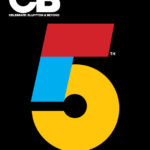At nearly every gig I play, I can count on some type of statement to be made about my physical appearance, usually from the mouth of—you guessed it—a man. No one has bad intentions, and most of the time, they’re nothing but harmless compliments. But as I hear for the umpteenth time how “nice it is to have something pretty to look at up there,” I can’t help but think how a male with the same career doesn’t typically deal with the same remarks. It shouldn’t matter how I look. It should matter how I sound. The two are unrelated, yet as a young woman, I’m constantly reminded that, whether or not it’s subconscious, many seem to consider them to be intertwined and equally important.
I don’t want to come off sounding vain or ungrateful. However, I’m tired of carefully choosing my words just to ensure I’m not perceived as either too confident or too insecure. I’ve been called both by people who don’t even know me. Don’t get me wrong; this isn’t some radically feminist story claiming that all men are misogynistic. But I think there’s something to be said about the experiences that go along with being a female musician.
I started gigging around Hilton Head when I was 14 years old. Growing up tall, I always looked older than my age. As a teen, I found myself suddenly thrust into the bar scene several years before I could even order a drink. I quickly learned how alcohol can take away people’s vocal filter, especially when directed towards a young girl with a guitar. Even after years of playing out, to this day I’m still sometimes shocked by the inappropriateness of things that are said to me. Overall, I think I’m very lucky. Unlike many other women above me in the industry, I haven’t been sexually abused or physically harassed. I have, though, felt unsafe on multiple occasions. This is something that a man in my position would never have to feel.
As a musician, you primarily want two things: to be heard and to be respected. As a woman artist, both are more difficult to earn, despite ability and talent. Statistically speaking, the numbers are dismal as far as gender equality in the music industry. According to PRS for Music, only 13 percent of their 95,000 songwriters are currently female. Given this, it’s little surprise that songs written by women are not always taken seriously. Pop music is a $4 billion-a-year business in which men hold 67.8 percent of the jobs and the vast majority of positions of power. Led by Dr. Stacy L. Smith, the “Inclusion in the Recording Studio” report marks an annual investigation into the music industry. To study the gender and race of the industry’s core professions, the researchers looked at the 700 top songs on Billboard’s year-end Hot 100 chart between 2012 and 2018. Across the three creative roles highlighted in the study, women make up 21.7 percent of artists, 12.3 percent of songwriters and 2.1 percent of producers. Only 10.4 percent of Grammy nominees between 2013 and 2019 were women.
“What the experiences of women reveal is that the biggest barrier they face is the way the music industry thinks about women,” Smith said in a press release. “The perception of women is highly stereotypical, sexualized, and without skill. Until those core beliefs are altered, women will continue to face a roadblock as they navigate their careers.” Female artists are often treated as no more than pretty cash cows, whose bodies and talents exist purely to be exploited for maximum commercial gain.
I often think about Pink Floyd’s Roger Waters, specifically his idea of building “The Wall” between the band and their fans. When I was a kid, I never understood the idea of the wall, but the older I become, the more I seem to get it. “The Wall” was a luxury that allowed for concerts to be entirely and solely about the music, without focusing on image or appearance. Sometimes I wish I could build my own wall. There are other ways to fight, too. Pop sensation Billie Eilish chooses each day to wear excessively baggy clothes in order to prevent being sexualized. “Cheap Thrills” singer Sia performs with a wig covering her face. Both artists are scrutinized for their choices, but personally, I understand and respect them.
I want to reiterate this: I don’t consider myself a victim. Most of the time, I love what I do. I enjoy being on stage and I love getting the chance to talk to people about music. I’m not looking for sympathy or any kind of special treatment but simply to bring to light what occurs for female musicians every day. I’m seeking to be heard, and to me, that’s worth writing about.



